It almost feels awful to write that 2016 was perhaps my best year yet (professionally speaking), given all the losses of great artists, scientists and all the other negative things that happened this year. But it’s true. 2016 was, to me, an amazing year of success-after-success.
2016 in review, month by month
I started the 2016 year exhausted and sick, as I normally do. Usually I end up so tired from the previous semester (I teach 2 courses each Fall semester, and combine that with committee work, service to the discipline, workshops, travel, fieldwork and my own personal life) that I fall ill. Last year wasn’t an exception. I ended 2015 sick, but I think that was because my holidays were even more stressful than my semester. I loved travelling with my brothers and their families, don’t get me wrong, but it was a tad too intense and too cold for my liking.
Towards the end of January and beginning of February, I went to Madrid to do fieldwork for three weeks for several of my research projects: informal waste picking, sanitation and wastewater governance, and bottled water. Don’t get me wrong, I love Madrid. I loved doing fieldwork and got a lot of really interesting data and insights. But the truth is, doing this at the beginning of the year reminded me of why I hate how the semesters are designed here at CIDE and how much I prefer the quarter system that we had in Canada (12 weeks). On normal semesters at CIDE, we teach anywhere between 13 and 16 weeks. 13 weeks is decent but since the Spring semester cuts almost into June, it’s really hard to have a large chunk of time to do fieldwork, write and think. I would prefer a Spring semester that started January 4th and finished May 3rd.
Before I left, I was asked last-minute to teach Public Policy Analysis, a course I’ve taught before while at UBC, but one that required me to revamp my toolkit, re-read all the literature and re-construct a syllabus, using women, scholars of color and other under-represented minorities. Since I had already scheduled all my commitments for the spring, I had to juggle teaching in a semester I don’t normally teach with a very intense and travel-heavy schedule. This was terrible for my health and my levels of stress. But I am happy that I did teach the course, and happy that I taught an extended version in the Fall of 2016. Plus, I survived, and didn’t miss any lectures (except for a couple due to health issues)!
In February I had to do a lot of work with my graduate students, Laura (who recently graduated with a Masters in Journalism and Public Affairs), and Alfredo (who just graduated with a Masters in Public Policy and Administration). Both of them worked in my bottled water project, and they spent a week with me and my research assistants Daniela and Karina working on the beginnings of a collective book project on bottled water in Mexico, which I am assembling and editing. Fantastic experience, but again, a lot of stress because I needed to dedicate a lot of time to working with my students, both undergraduate and graduate. I love supervising theses, and these projects are fantastic, so it was a lot of fun in the end. I also taught a workshop for a small municipality in Jalisco on policy design.
In March I went to ISA in Atlanta, which was amazing because I got to see a lot of my friends. My panel on the global politics of water was very well received, and I got to hang out with my friends and collaborators Dustin Garrick (Oxford University), Christiana Peppard (Fordham University), Oriol Mirosa (University of Wisconsin, Milwaukee) and Cecilia Tortajada (National University of Singapore). I also got to hang out with a lot of my good friends, and have my first working meeting for our ISA 2017 paper with Amanda Murdie (University of Georgia), which is going to be a fantastic paper.
I also got to discuss our informal e-waste governance in Mexico and the US research project and hang out with my good friend and coauthor Kate O’Neill (University of California, Berkeley). I also had dinner with my mentor and good friend Kathy Harrison (The University of British Columbia) and with Oriol and his fiancee. Overall, an amazing time. I usually have a fantastic time at ISA. Saw lots of good friends, ate great food, managed to think a lot about my work on bottled water.
Also in March, I went to San Diego (a city I adore) for Western Political Science Association (WPSA)’s meeting. I got to meet with Andrew Biro (Acadia University), hang out with my good friend Janni Aragon, and meet lots and lots of excellent political scientists with whom I had corresponded but never met. I love WPSA and I’m glad I’m doing it next year too. I organized a panel on the governance of water during times of crisis and got to reconnect with my good friend Abby York (Arizona State University). Both Abby and I are Bloomington-trained, and thus scholars of the Ostrom tradition, so it was great to hang out again. Our panel was great and I am glad I got to hang out with Leila Harris (The University of British Columbia) again, since our interest in the geographies of water are very similar.
One thing I had promised myself during 2016 is that I would focus. So the vast majority of my work this year showcased what I have been studying in regards to the governance of bottled water. I also managed to focus on exactly the things I wanted to focus: my own health, my family, my friends, submitting papers to higher-ranked journals, and hanging out with my coauthors and consolidating our friendship.
At the end of March and beginning of April, I went to American University in Washington DC invited by the Center for Latin American Studies and their project, Religion and Climate Change in Cross-Regional Perspective. Thanks to Eric Hershberg and Evan Berry for inviting me. It was an amazing experience for many reasons. As you may all know, I don’t study climate change policy per se. What work I do on climate policy is on evaluation of climate policy instruments and implementation, and adaptation to climate change in the water sector. So this was a much welcome, humbling and eye-opening experience.
I also gave a talk at the School for International Service at American University thanks to the invitation of my friend and colleague Sikina Jinnah. I think the entire experience was fantastic. I love giving talks to PhD students because I find their analysis really on point and their eagerness to engage with the research extraordinarily motivating.
The Religion and Climate Change workshop brought me a lot of new good friends and colleagues, but one that stood out was Gina Drew (University of Adelaide), with whom I share an interest in water governance, sanitation and anthropology, as well as ethnographic methods. Plus our personalities are SO SIMILAR!
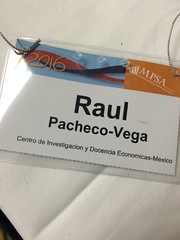 April was Chicago for MPSA (Midwest Political Science Association). Oh, MPSA how I loved you. How I still love you. I adore ISA, but somehow MPSA also really made me feel at home. I got to see a lot of really good friends of mine, particularly from the policy sciences field, and also those who do experiments. I presented two papers, and got a chance to hang out with dear friends of mine like Milena Ang and Manuel Cabal, both of whom are doing their PhDs at University of Chicago. I always look forward to MPSA, and the one thing I always miss is the opportunity to see more people, to see more papers presented. But one great thing I did here was that I participated in two mentoring sessions for up-and-coming scholars.
April was Chicago for MPSA (Midwest Political Science Association). Oh, MPSA how I loved you. How I still love you. I adore ISA, but somehow MPSA also really made me feel at home. I got to see a lot of really good friends of mine, particularly from the policy sciences field, and also those who do experiments. I presented two papers, and got a chance to hang out with dear friends of mine like Milena Ang and Manuel Cabal, both of whom are doing their PhDs at University of Chicago. I always look forward to MPSA, and the one thing I always miss is the opportunity to see more people, to see more papers presented. But one great thing I did here was that I participated in two mentoring sessions for up-and-coming scholars.
This was actually very important to me, because mentorship is a core element of what I want my academic career to have. I am who I am because of amazing mentors I had, so I really want to make sure to pay it forward. Also, I got to meet in person the one and only Janet Box-Steffensmeier, who won a career award for her contributions to political science. Jan is amazing and so kind and generous, I want to be her when I grow up.
With @jboxstef and @archimedino after our #MPSA16 #MPSA2016 panel. I'm so proud to belong to an amazing community. pic.twitter.com/XZRkrHjbZ9
— Dr Raul Pacheco-Vega (@raulpacheco) April 10, 2016
In April, I also got invited by the Center for International Education to participate in a conference on Water Centric Cities at the University of Wisconsin-Milwaukee. This conference gave me a chance to spend a lot of quality time with my good friend and coauthor Oriol Mirosa, who is an assistant professor there. Oriol and I are working on a large project on the global human right to water, and this conference gave us a chance to present together in the same panel, and to discuss our research, plus also eat a lot of good food and hang out.
I also met a lot of really interesting people at the conference, and got to see again Sara Mitchell (University of Iowa), whom I consider a good friend and mentor.
My good friend Debora VanNijnatten (Wilfrid Laurier University) came to CIDE in April to work with my colleague (and also good friend) Marcela Lopez-Vallejo and do some research while here. Since Debora and I know each other since before I even started my PhD, it was amazing to have her here again. She’s an excellent scholar and well, I think we all Canadian political scientists know and are friends with each other. Debora was kind enough to engage with my students in a Tertulia meeting and discuss the ins-and-outs of doing policy work, both applied and theoretical.
For me, being able to take holidays in late April and early May really made the difference with regards to previous years. Even though I went to Pittsburgh for Nadia’s graduation, I managed to stay healthy because I rested, even after all the travel I had been doing in the first four months of the year. I also spent time with my brother’s family (my nieces and I are very close), so it was really good for all of us overall.
In May of 2016 I went to Chiapas (San Cristobal de las Casas, to be exact) to participate in a workshop on the water problems in Mexico that my friend and colleague Edith Kauffer from CIESAS Sureste organized with several other Mexican water scholars. I love these workshops because they are small enough that they allow you to discuss issues and papers and edit them without the pressure of large conferences. I presented some of my work on bottled water and water insecurity, which was well received. We did, however, have several issues with logistics, not the least the fact that the roads to and from San Cristobal de las Casas were blocked by protests against the education reform. An interesting moment to apply what I know about protests and ethnographic work!
I finished teaching Public Policy Analysis the first week of May and then ran off to New York City to present at the Latin American Studies Association (LASA). By the time May hit me, I was exhausted and didn’t want anything to do with research. But I had already committed to participating in LASA with my good friend and coauthor Marcela Gonzalez-Rivas (University of Pittsburgh), so I decided to avoid canceling and just flew into NYC for the conference. Got to see many good friends who are also Latin Americanists, but I was really tired by the time I was done with the conference, so I was a bit anti-social, except for a morning when I went for a coffee with my graduate school colleague and close friend Sara Koopman.
In June 2016 we had a series of job talks for 3 new positions in my department, which took a lot of my time. I also had to participate in the Public Management Research Conference in Aarhus (Denmark), and a workshop on cities while I was there, so I had to juggle a lot during June. But I don’t regret for a second having attended PMRC. It was an AMAZING experience that allowed me to spend time with friends and colleagues from the Public Administration field, including my good friend and colleague at CIDE, Mauricio Dussauge. I also spent a couple of days with my friends and also scholars of public administration Staci Zavattaro (University of Central Florida) and Kelly LeRoux (University of Illinois at Chicago). We even went to Sweden!
In July 2016, my coauthor Kate O’Neill and I hosted an experts workshop to discuss the state of electronic waste governance in Mexico and the US, both in the formal and informal sector. For Kate and I this was the culmination of a project where we got funding from the UC MEXUS CONACYT initiative for cross-national collaborative research between University of California researchers and scholars based in Mexico.
The other great thing I did in 2016 is that I TOOK ALL MY HOLIDAY DAYS. That means, in July (when CIDE is closed), I actually took vacations. I spent three weeks with my brothers, their families and my Mom, which was absolutely glorious. I woke up, ate, read, went to sleep. Other days, we would just hang out. One day we went to the city of Guanajuato. THREE WEEKS OF HOLIDAYS. That made me a lot of good.
I hit the ground running in August. I went to Mexico City for the national meeting for the design of the new Mexican water law in early August. This was a meeting I needed to attend because it also helps tie all my water governance projects together. During this month I also had a visiting student from University of California Berkeley, Nain Martinez, who is doing his PhD there. It was important for me that Nain had a good experience and that he felt supported, so I had to juggle my own calendar with ensuring that Nain had enough contact time with me to discuss his own research. Around the same time, Javier Roiz (a former professor of my Mom’s from when she did her PhD at Universidad Complutense in Spain, and a visiting scholar at CIDE) asked me if he could come down to visit us and give a few talks. So I also organized that visit. Organizing these events takes a toll on everyone because you want to make sure that the visiting scholar is having a good time, and also that everything runs smoothly. My Mom served as the discussant for Javier’s talk and everything worked out very well. But I started the semester very, very tired.
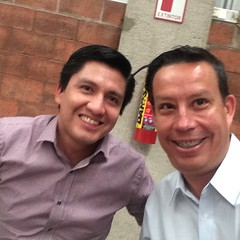 I was invited by my good friend Mario Torrico from FLACSO (Facultad Latinoamericana de Ciencias Sociales, Sede Mexico) to give a talk for their Masters of Comparative Public Policy programme. I am always keen to collaborate with FLACSO scholars, because not only are they top-notch researchers, but they’re also amazing human beings. One of my students with Dr. Ligia Tavera Fenollosa, Pavel Martinez, just graduated this fall from his Masters and I sat on his committee. So, overall, I try to stay close to FLACSO professors. And off I went, again, to Mexico City. I taught them about qualitative methods in comparative public policy, a topic I know well.
I was invited by my good friend Mario Torrico from FLACSO (Facultad Latinoamericana de Ciencias Sociales, Sede Mexico) to give a talk for their Masters of Comparative Public Policy programme. I am always keen to collaborate with FLACSO scholars, because not only are they top-notch researchers, but they’re also amazing human beings. One of my students with Dr. Ligia Tavera Fenollosa, Pavel Martinez, just graduated this fall from his Masters and I sat on his committee. So, overall, I try to stay close to FLACSO professors. And off I went, again, to Mexico City. I taught them about qualitative methods in comparative public policy, a topic I know well.
September 2016 was a bit of a whirlwind. While my brother and my Mom went to Israel for a well-deserved vacation, I stayed and taught two classes, all the while trying to juggle my research and ensuring that my students finished their theses and graduated on time. Also, Kate O’Neill and I had to finish our project so I headed up to the University of California at Berkeley to work with her and give a couple of talks. It was a fantastic experience and I got to meet Alison Post, who is also a fantastic scholar of remunicipalization and Latin American studies at Berkeley.
Perhaps one of my biggest achievements (in addition to finishing the e-waste project with Kate O’Neill, submitting and getting a conditional acceptance of our qualitative methods paper with Kate Parizeau and working with Oriol Mirosa on the human right to water project, Staci Zavattaro on the public administration literature review and Marcela Gonzalez-Rivas on the water governance paradigms project, was winning a $4,000,000 pesos ($200,000 USD) collaborative grant to study water conflict in Mexico. My largest grant by far, and my most interesting project to date. Interdisciplinary, collaborative, and inter-institutional, this project definitely will change the way in which we think about water conflicts in Mexico, and hopefully make a solid contribution to our understanding of the topic globally.
The second huge achievement of 2016 for me was being admitted to the Evidence in Governance and Politics network (EGAP). I am a multi-methods person, but lately I’ve been doing a lot more work with field experiments, so being admitted to EGAP validated my interest in experimental approaches to public policy design and implementation, and participating in EGAP18 at Yale University were highlights not only of my October but my 2016 overall.
Towards the end of October, I gave a talk on intractable water conflicts at the Mexican Institute of Water Technology and then a lecture in our diploma program at CIDE on conflict transformation, invited by my colleague Mara Hernandez.
By the beginning of November, I was completely and entirely exhausted. That’s again why I dislike 16 week semesters. Given that we teach 4 hours per week, making for 64 hours per semester, as opposed to 3 hours per week times 13 weeks, which is 39 as I used to do at UBC, students AND faculty alike end up really exhausted during the fall. So, though I teach a 2-0 teaching load, given how many hours I am teaching, I actually have roughly a 4-0 load, or as I did this 2016 with a 1-2, about 2-4. I love teaching, but these many hours do take a toll (both on students and faculty).
I had two events back-to-back, one at El Colegio de San Luis on water justice, and one for an ecosystem integrity project. This meant that I arrived to the end of the term pretty exhausted. HOWEVER, since I had accumulated all my holiday days towards December, I was able to finish the semester earlier than expected. This change in plans meant that I was able to cram one last commitment during the year, which happened in early December. I spoke at a workshop on commons in Latin America, presenting some stuff on the governance of waste and wastewater using Elinor Ostrom and Vincent Ostrom’s theories.
Me, looking all professorial while explaining commons theory (at @ciesas IRD workshop "Reimagining the Commons" pic.twitter.com/2zhj5EFiKY
— Dr Raul Pacheco-Vega (@raulpacheco) December 8, 2016
Lucky for me, towards the end of November and beginning of December I also had an event organized by El Colegio de Mexico on Mexico-Canada relations. Obviously because of my being Mexinadian I was invited and was lucky to hang out with two friends and colleagues of mine not once, but TWICE: Dr. Laura Macdonald from Carleton University and Dr. Debora VanNijnatten.
A meeting of Canadian professors! My friends Debora VanNijnatten (Wilfrid Laurier) & Laura Macdonald (Carleton) & me pic.twitter.com/ksavUtUgsK
— Dr Raul Pacheco-Vega (@raulpacheco) November 11, 2016
I also met Justin Massie and my good friend Julian Durazo-Hermann (who’s also Mexinadian and teaches at Universite du Quebec au Montreal) at the same event. It is always nice to catch up with good friends with whom you have been close for a number of years.
With Julian Durazo and @justinmassie1 from @uqam at #MexCanColMex luncheon (thanks @CanadaEmbMexico for inviting me) pic.twitter.com/N6Dxd9c2nE
— Dr Raul Pacheco-Vega (@raulpacheco) November 17, 2016
The personal of 2016
On the personal side of things, I am sad to report that I neither played volleyball nor danced nor did I take a dancing class. But that’s the main lesson I learned this year: I NEED TO LEARN HOW TO LET GO OF THINGS. Sometimes, I have Fear of Missing Out (FOMO). I want to Do All The Things. I want to Learn All The Things. I want to Teach All The Classes. I want to supervise and train All The Students and Research Assistants. I want to achieve All The Successes. This is NOT how life works. You can have it all yes, but probably not all at the same time.
This year my niece Nadia graduated from University of Pittsburgh with a degree in political science and international relations (several of my good friends were also her professors, which made the circle complete). And it’s nice to have 3 generations of political scientists in the family (my Mom, myself and Nadia).
Three generations of political scientists (my Mom, myself and my niece Nadia) @kramtrak @aperezli pic.twitter.com/aMEqFXPiKX
— Dr Raul Pacheco-Vega (@raulpacheco) June 14, 2015
On the social media front…
There were some wins, I have to say! I got invited to blog for The Nature of Cities, and for The Duck of Minerva. And I got some promotion for my work on social media.
- Named as one of 12 key academic Twitter accounts to follow by the magazine University Affairs.
- Named as one of 15 indispensable academic Twitter accounts to follow by The Chronicle of Higher Education.
Bottom line…
In the end, I felt that 2016 offered me what I didn’t expect to get, given how the year started (with me physically ill and having to teach an entirely new course during a semester I don’t normally teach, all of a sudden): an opportunity to showcase my scholarship and my ability to focus, all the while blossoming in the field I work in. I feel intellectually challenged. I’m motivated by the questions I am examining and passionate about the research I undertake. The problems I’m looking at are complex and intractable. I work hard at making them easier to address and doing this kind of work really excites me. I wake up every morning happy and eager to start working. I feel incredibly fulfilled.
I ate All The Ethiopian food (in Madrid, in Atlanta, in San Diego, in Washington DC, in Chicago, in Milwaukee, in New York City, in Berkeley).
I spent a lot of quality time with good friends and colleagues and coauthors, did fieldwork, wrote many papers (AND SUBMITTED THEM TO JOURNALS FOR PEER REVIEW, yay me!), and taught many brilliant students (two courses, Regional Development and Public Policy Analysis). My CIDE students make me SO PROUD. They’re brilliant and I’m sure they will do amazing things in the future.
At the end of the day, this was how I closed 2016: with my Mom, in Puerto Vallarta, laying by the pool, and doing exactly nothing. Because that’s how I want to be able to spend my holidays: with the people I love, relaxing, eating good food, and experiencing the beauty of not having anything to do.
Así los leo. pic.twitter.com/5VQuz1LW58
— Dr Raul Pacheco-Vega (@raulpacheco) December 25, 2016
To me, relaxation and rejuvenation is also part of my own personal definition of success.
What to expect in 2017
I am obviously anxious about the future of the US. I don’t like what I am witnessing in the US and more importantly, globally. But I am a political scientist. I work hard to make sense of the world, and I’m not alone in this pursuit. Lots of great people are doing their best to make sense of how disastrous 2016 was, and ways in which we can move forward in 2017 and improve our society at all different scales.
I am very much looking forward to closing a few projects (the human right to water one with Oriol, the one on environmental NGOs with Amanda, the e-waste governance one with Kate O’Neill, the informal waste picking one with Kate Parizeau, and several of my own). I’m looking forward to finishing the work we started in 2015 for the polycentricity project, and to participating in an institutional analysis workshop in February. I look forward to working with Sharon Lauricella, Staci Zavattaro, Christiana Peppard, and my own students to finish some projects we started. I am looking forward to finishing a few projects, including three books that I have on the go. And more importantly, I really want to play competitive volleyball this year again, and dance. Hopefully I’ll be able to do it all, even if not all at the same time.
I will continue to blog for The Duck of Minerva, The Nature of Cities and here on my own blog. And obviously I will be tweeting (@raulpacheco if you want to follow me on Twitter, and Dr. Raul Pacheco-Vega on Facebook).
Here’s to a better 2017.
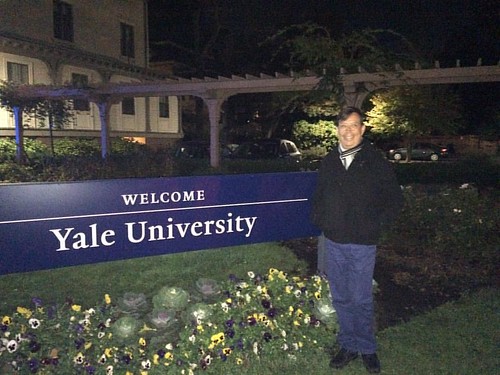
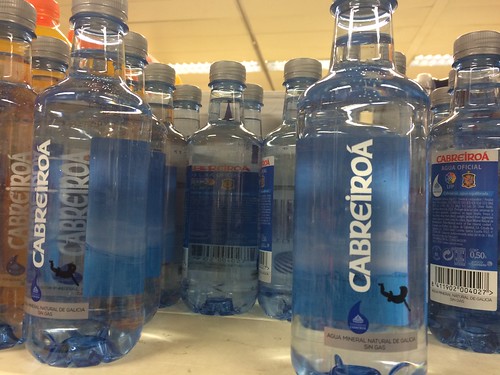
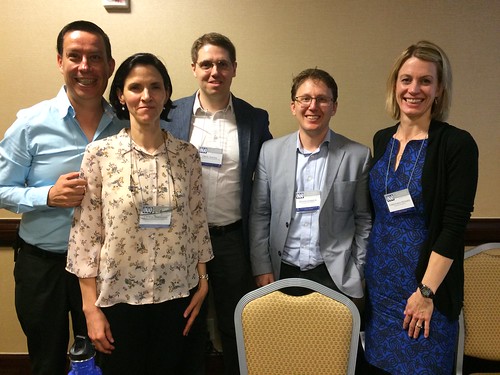
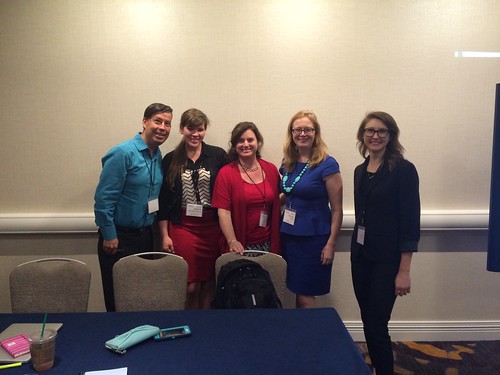
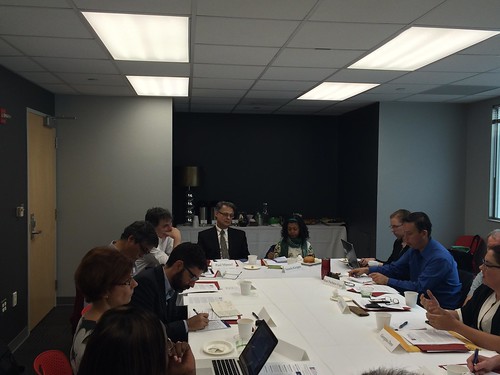
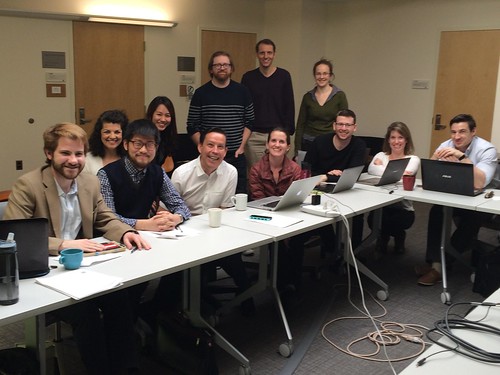
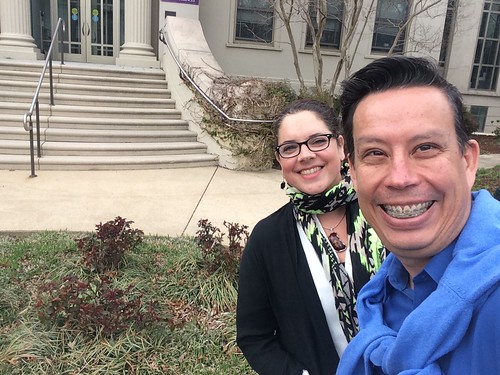
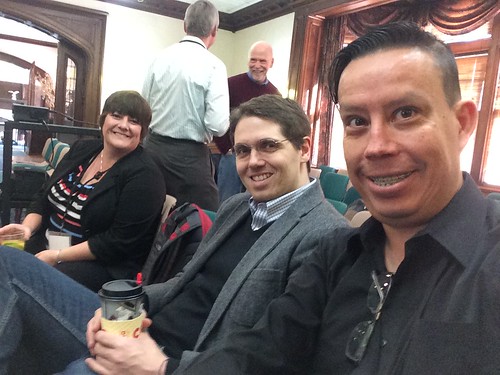
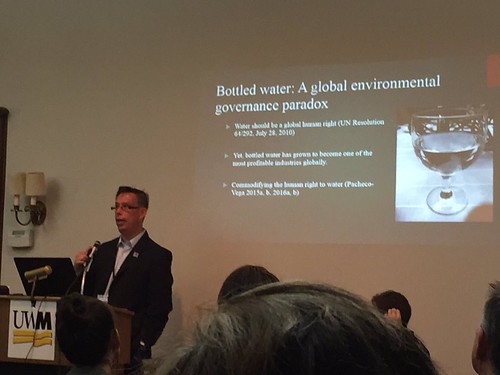
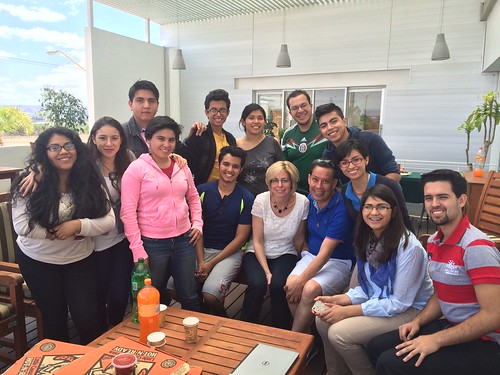
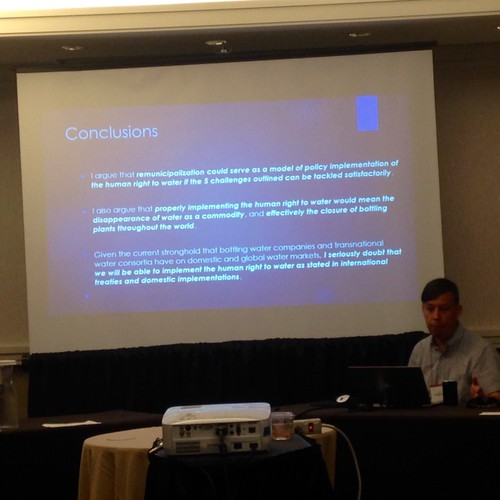
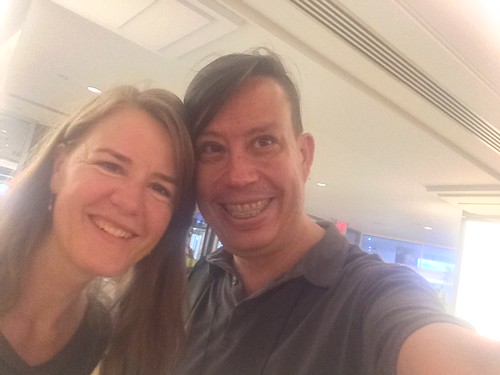
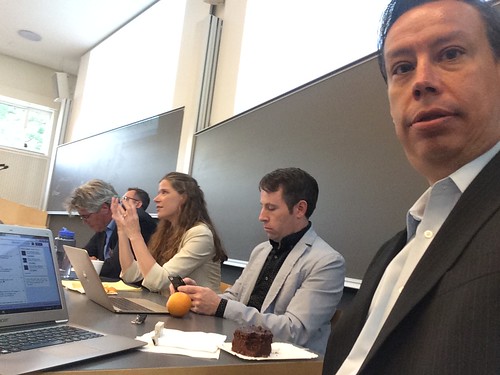
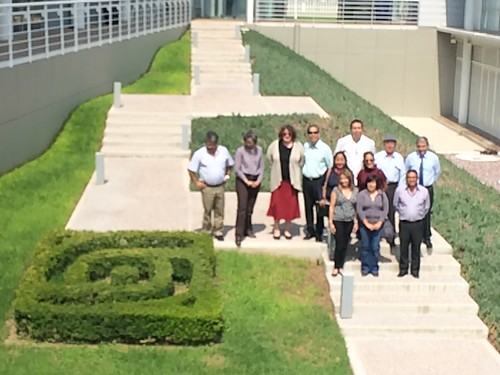
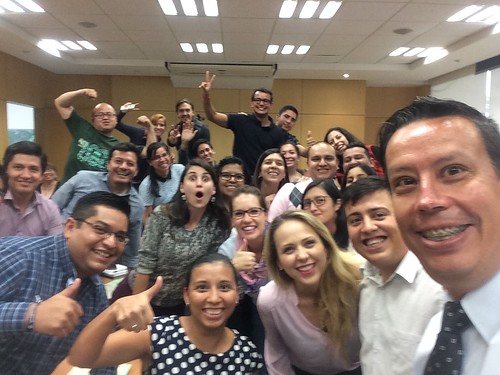
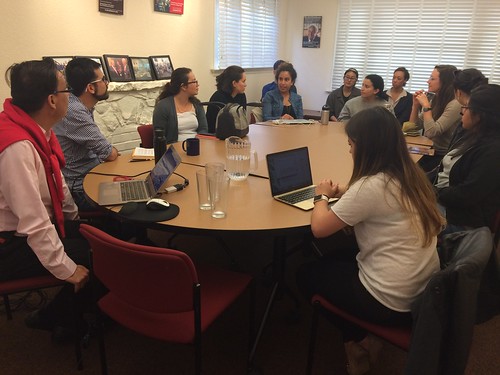
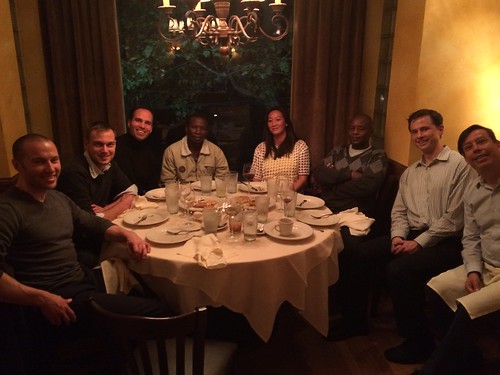
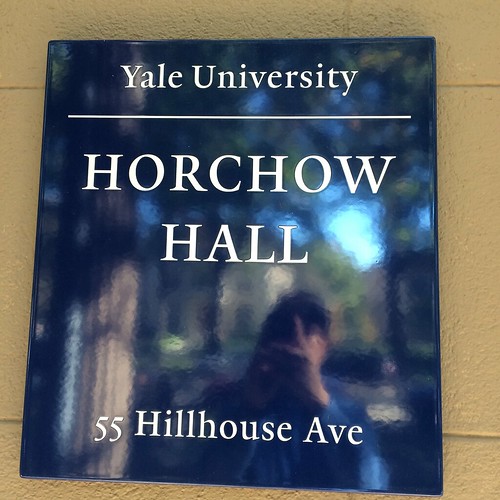
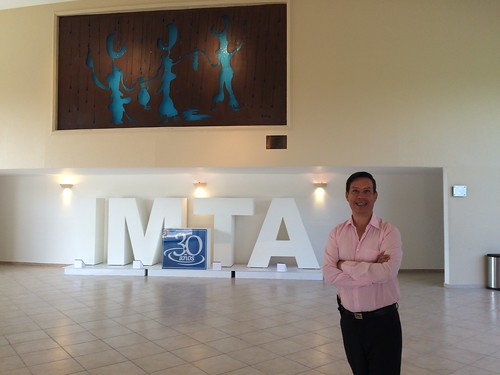
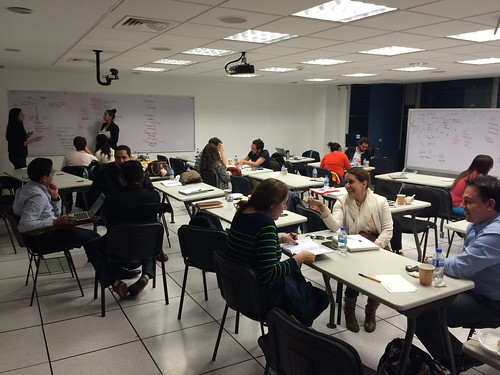
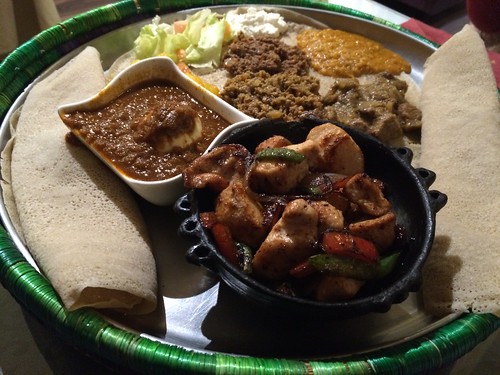

0 Responses
Stay in touch with the conversation, subscribe to the RSS feed for comments on this post.